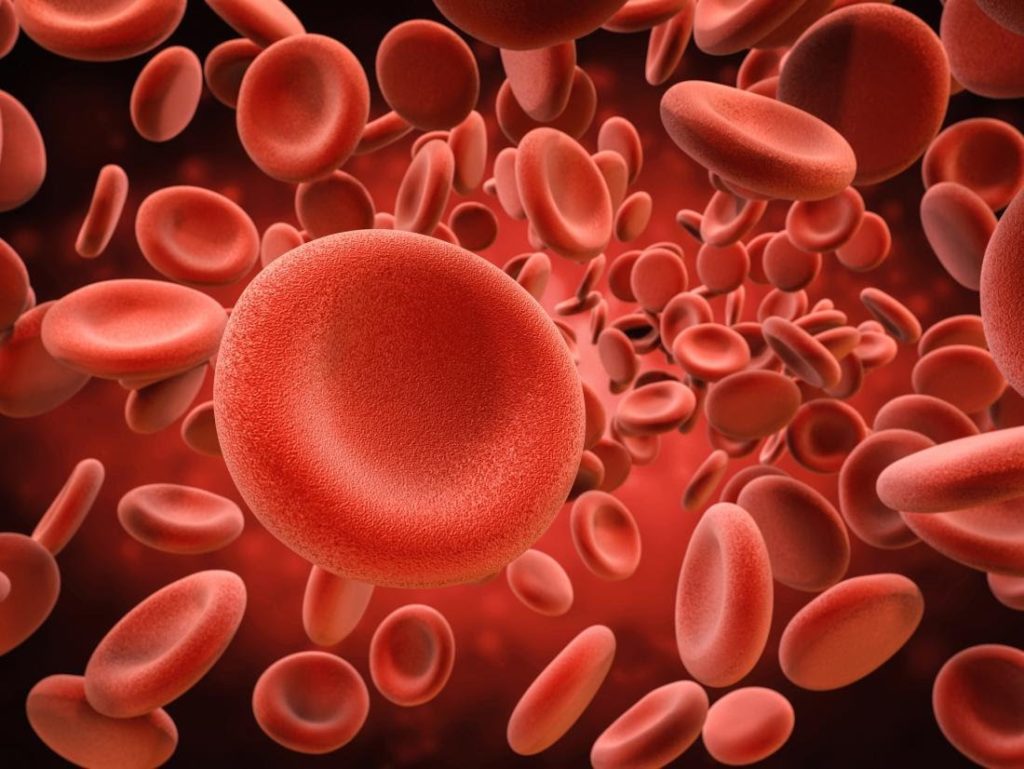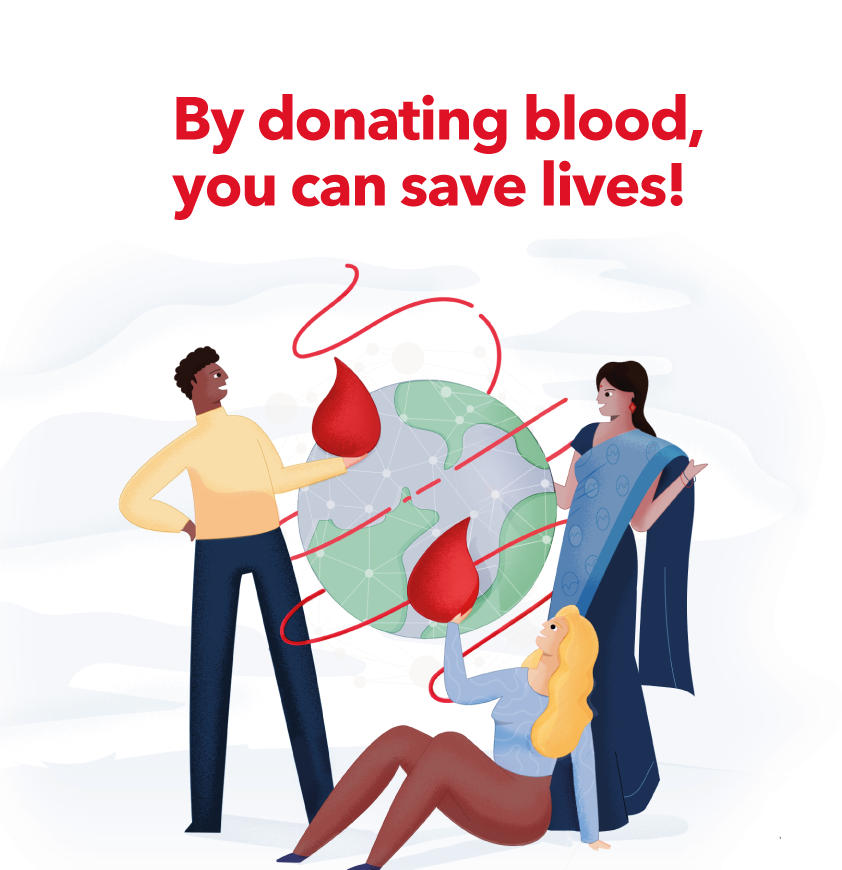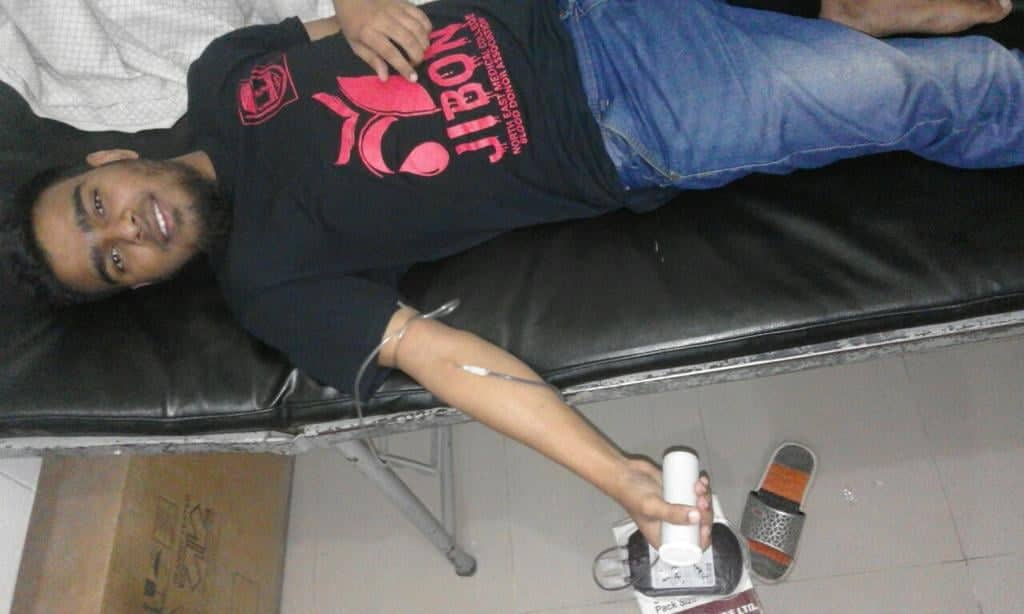Blood donation is dependent on the goodwill of people, to voluntarily donate blood, without financial reward. There is a continuous need for new blood donors because the demand for donor blood is increasing, whereas the supply of blood is declining. Only 3% of the eligible population members actually donate blood. This leaves an enormous potential blood donor base, which if tapped into and maintained could lead to an adequate reserve of donations to meet the transfusion needs.

Blood is needed for emergencies. It is also needed for people who have cancer, blood disorders, sickle cell anemia, and other illnesses. Our society has not placed a high priority on blood donation but it is a social responsibility. The donor should be donating it with confidence that it will be used in saving the lives of his fellow beings.

The average amount of blood present in an adult is 4-5 liters or about 8% of the body weight. And life cycles of the different components are short. The red blood cell lives about 120 days while white cells last about 3-9 days. New blood cells are constantly generated in the body. A person can donate blood 168 times during his 18 to 60 years. Unfortunately, most people only donate blood a few times throughout their lifetime, and some people never donate blood at all.

Unavailability of blood may cost lives. Hence, the importance of blood donation is tremendous. This is the greatest gift one can give to fellow humans. Voluntary Blood Donors are saviors of mankind. If someone really loves oneself and other fellow beings, the only way to express it is to donate blood voluntarily. We must change the current mindset from an occasional donation, to frequent.

Jibon is devoted to motivating people to donate blood. Jibon always provide blood unit in exchange for another unit. This is carried out in the hope that a person would become a donor for the first time. We will get the opportunity to raise awareness for blood donation in society. We maintain a database of blood donors who are keen to donate blood in need. The majority of donors are students of North East Medical College. In an emergency, we donate blood without exchange by assessing the situation. In the near future, we will be conducting a blood donation campaign where we will collect the blood units to enrich our blood bank.

We collect about 450 ml (a pint) of blood during a single blood donation.
The plasma portion of your donation is replaced within hours and the platelet portion within days. Red blood cells can take months to replenish.
You should avoid strenuous activity for six to eight hours after giving blood.
Only for a moment. Pinch the fleshy, soft underside of your arm. That pinch is similar to what you will feel when the needle is inserted.
The entire process takes about one hour and 15 minutes; the actual donation of a pint of whole blood unit takes eight to 10 minutes. However, the time varies slightly with each person depending on several factors including the donor’s health history.
After blood is drawn, it is tested for ABO group (blood type) and Rh type (positive or negative)
Blood is tested for:
— Hepatitis B virus
— Hepatitis C virus
— HIV-1 and HIV-2
— Syphilis
— Malaria
Most people tolerate blood donation very well. However, some people experience fatigue. You should discuss your concerns before and after donation with a staff member at the blood donor center
You are aged between 18 and 65.
You need to be at least 50 Kg to donate blood.
Yes. Menstruating doesn’t affect your ability to donate.
Allergies
Acceptable as long as you feel well, have no fever, and have no problems breathing through your mouth.
Asthma
Acceptable as long as you do not have any limitations on daily activities and are not having difficulty breathing at the time of donation and you otherwise feel well. Medications for asthma do not disqualify you from donating.
Bleeding Condition
If you have a history of bleeding problems, you will be asked additional questions. If your blood does not clot normally, you should not donate since you may have excessive bleeding where the needle was placed. For the same reason, you should not donate if you are taking any blood thinner.
If you are on aspirin, it is OK to donate whole blood. However, you must be off of aspirin for at least 2 full days in order to donate platelets by apheresis.
High Blood Pressure
Acceptable as long as your blood pressure is below 180 systolic and below 100 diastolic at the time of donation. Medications for high blood pressure do not disqualify you from donating.
Low Blood Pressure
Acceptable as long as you feel well when you come to donate, and your blood pressure is at least 90/50 (systolic/diastolic).
Pulse (High or Low)
Acceptable as long as your pulse is no more than 100 and no less than 50.
Cancer
Eligibility depends on the type of cancer and treatment history. If you had leukemia or lymphoma, including Hodgkin’s Disease and other cancers of the blood, you are not eligible to donate. Other types of cancer are acceptable if cancer has been treated successfully and it has been more than 12 months since treatment was completed and there has been no cancer recurrence at this time. Lower risk in-situ cancers including squamous or basal cell cancers of the skin that have been completely removed do not require a 12-month waiting period.
Precancerous conditions of the uterine cervix do not disqualify you from donation if the abnormality has been treated successfully. You should discuss your particular situation with the health historian at the time of donation.
Diabetes
Diabetics who are well controlled on insulin or oral medications are eligible to donate.
Heart Disease
In general, acceptable as long as you have been medically evaluated and treated, have no current (within the last 6 months) heart-related symptoms such as chest pain and have no limitations or restrictions on your normal daily activities.
Hemoglobin, Hematocrit, Blood Count
In order to donate blood, a woman must have a hemoglobin level of at least 12.5 g/dL, and a man must have a hemoglobin level of at least 13.0 g/dL. For all donors, the hemoglobin level can be no greater than 20 g/dL.
Hepatitis, Jaundice
If you have signs or symptoms of hepatitis (inflammation of the liver) caused by a virus, or unexplained jaundice (yellow discoloration of the skin), you are not eligible to donate blood. If you ever tested positive for hepatitis B or hepatitis C, at any age, you are not eligible to donate, even if you were never sick or jaundiced from the infection.
Tuberculosis
If you have active tuberculosis or are being treated for active tuberculosis you should not donate. Acceptable if you have a positive skin test or blood test, but no active tuberculosis and are NOT taking antibiotics. If you are receiving antibiotics for a positive TB skin test or blood test only or if you are being treated for tuberculosis infection, wait until treatment is successfully completed before donating.
Pregnancy, Nursing
Following pregnancy, the deferral period should last as many months as the duration of the pregnancy.
It is not advisable to donate blood while breast-feeding. Following childbirth, the deferral period is at least 9 months (as for pregnancy) and until 3 months after your baby is significantly weaned (i.e. getting most of his/her nutrition from solids or bottle feeding).